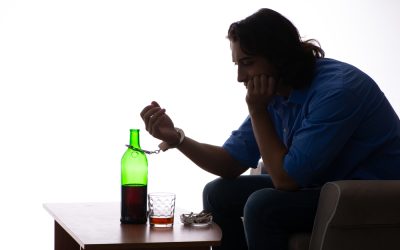What Does it Mean to Recover from Addiction?
Content
A resident of Gaithersburg, Michael has planted roots and established a network in the local recovery community. Michael’s goal is to connect current client and alumni with resources to strengthen their life in recovery. After graduating high school, he attended college at the University of Coastal Carolina & Salisbury University. In 2015, Corey was given the opportunity to join Amethyst Recovery Center’s Business Development team. In 2018, Corey had the opportunity to partner with Amethyst and USR to open The Freedom Center in his to hometown of Gaithersburg, MD. Throughout his tenure at The Freedom Center, he has strategically built relationship with referring providers, hospitals and local government leaders.
What is the definition of long term sobriety?
Sobriety by definition simply indicates the absence of alcohol, drugs, or being under the influence. Most people who identify as having long term sobriety typically maintain this state of abstinence for several years or more.
If there is a lasting resentment or bitterness between family members that can’t be resolved, consider involving a third party. A counselor, clergy or someone else the family trusts can help repair the relationship. When someone is well on the road to long term recovery, it may seem that any substance-related problems are a thing of the past. There are things you can do as a family to support your loved one’s journey back to health and wellness.
A Life Free From Addiction Is Possible
There has been virtually no research on this topic using a long-term perspective. In the present study individuals had an average of 12 years of recovery. Interestingly, we note that one-third had recovered without formal treatment; all had a history of 12-step affiliation. To date, there are little data available on the effectiveness of 12-step groups alone; most studies Top 5 Tips to Consider When Choosing a Sober House for Living have assessed the effectiveness of 12-step recovery groups as an adjunct to formal treatment. The present study provides some support for the benefits of long-term 12-step participation, either alone or with formal treatment (also see McKay et al., 2001). At Duffy’s, guests may transition to the Extended Care Program following the completion of their 30th day in our care.

Addiction to alcohol or drugs wreaks havoc on a person’s physical body. Early recovery should include exercise, eating well, supplemental vitamins, and sleep hygiene. These will become ongoing habits that will continue throughout the journey. During this stage of treatment, an individual’s alcohol and drug use history will be taken, the treatment program will be introduced, and the counselor will work with the individual to develop an individualized treatment plan.
Stage 2: Contemplation
Poor sleep-hygiene can leave individuals feeling irritable, stressed, anxious, and experience low mood, which can also trigger a relapse. It is important for individuals in recovery to eat well, exercise, meditate, have proper sleep-hygiene, and engage in other such self-care behaviors that support their mental wellness and addiction recovery. People who have struggled with addiction sometimes think they can be treated and recover in a few days or that they will experience complete recovery once a treatment program has been completed. However, recovery experts and studies report that long-term treatment programs (90 days or more) result in patients achieving a longer period of sobriety.
- It is highly recommended to seek out outpatient drug and alcohol treatment and have additional support such as a sober coach and/or sober companion.
- Family therapy works to repair relationships and educate loved ones on addiction.
If your body does not feel well, then it is easier to turn to what has given you temporary feelings of ease in the past. When your body feels excellent without drugs and alcohol, then you will not be nearly as tempted to return to those habits, because you will feel good without them. Entering into long-term recovery isn’t easy, but with help, you can get there. One troubling question is whether this pattern — multiple relapses leading to eventual recovery — will continue now that more street drugs are contaminated with the deadly synthetic opioid fentanyl.
My experience here at Silvermist was a lifesaving opportunity and blessing
A professionally delivered substance use disorder treatment modality that requires daily to weekly attendance at a clinic or facility, allowing the patient to return home or to other living arrangements during non-treatment hours. A common recovery pathway in which remission from substance use disorder is achieved without the https://www.healthworkscollective.com/how-choose-sober-house-tips-to-focus-on/ support or services of professional or non-professional intervention. It implies a short-term resumption of substance use or heavy/hazardous use (e.g., for a night or a day) that is followed by a return to the original goal of moderate use or abstinence. Describes patients with both mental illness and substance use disorder.


